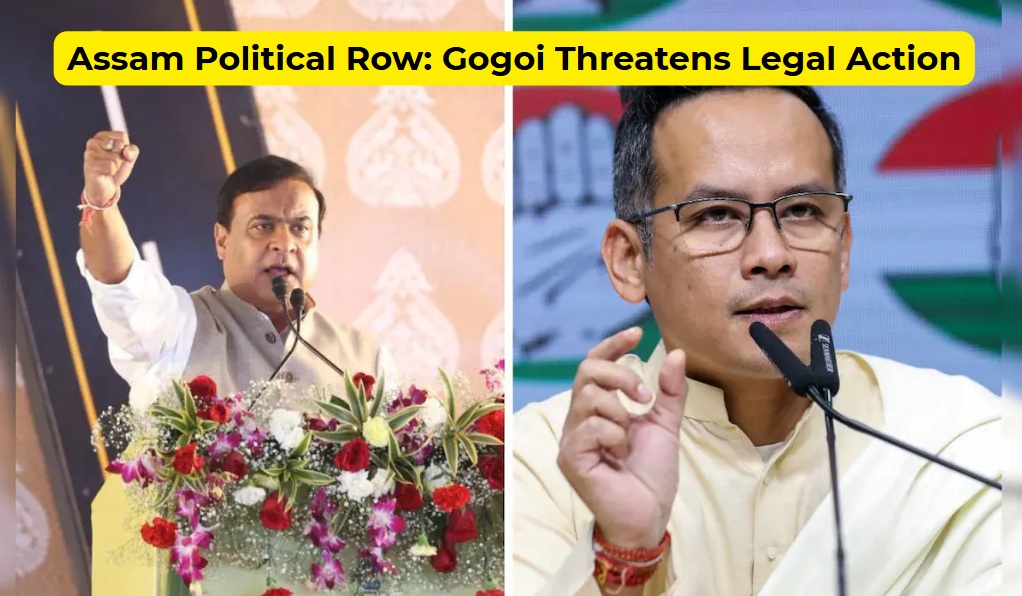2024 is the year of elections. Approx. 64 countries (plus the European Union) representing a combined population of about 49% of the global population will hold national elections, the results of which, for many, will prove consequential for years to come. But the most striking feature of the 2024 election is the widespread use of Artificial Intelligence (AI). The same caught the world’s attention on February 8th, 2024, when a video of former cricketer and jailed former Pakistani prime minister Imran Khan surfaced, claiming victory for his allies in the general

Artificial Intelligence in Politics
Artificial influence in politics refers to the use of technological tools and strategies to shape public opinion, sway political outcomes, and manipulate political results. AI is shaping voter education and influencing political discourse and is expected to significantly impact the elections of most countries, including the Lok Sabha Election of 2024 (India).
Artificial Intelligence (AI) can be broadly utilised in Prepoll, during poll and Post poll analysis
AI use in Prepoll Activities
Artificial intelligence (AI) is increasingly being utilized in pre-poll activities in elections around the world. Pre-poll refers to the period leading up to an election when various activities take place, including voter registration, candidate nomination, campaign planning, and voter outreach. Some pre-poll activities where AI is used are
Voter Analytics: AI algorithms are used to analyze demographic data, historical voting patterns, and social media activity to identify potential voters and predict their behaviour. Political parties and candidates use this information to target their campaign efforts more effectively, tailoring their messages to specific voter segments.
Voter Registration: AI-powered systems streamline voter registration processes by automating data entry, verifying voter eligibility, and detecting potential instances of fraud or duplication. This ensures that voter rolls are accurate and up-to-date, improving the integrity of the electoral process.
Candidate Nomination: AI tools assist political parties in identifying and selecting potential candidates based on criteria such as electoral viability, popularity, and alignment with party values. AI algorithms analyze data from various sources to assess candidates’ strengths and weaknesses, helping parties make informed decisions during the nomination process.
Campaign Planning: AI-driven predictive analytics models help political parties and candidates develop campaign strategies by forecasting election outcomes, identifying key battleground constituencies, and allocating resources accordingly. AI tools analyze polling data, demographic trends, and voter sentiment to inform campaign planning and messaging.
Voter Outreach: AI is used to personalize voter outreach efforts by tailoring campaign messages and advertisements to specific demographic groups. AI algorithms analyze data on voter preferences, interests, and behaviour to identify the most effective communication channels and messaging strategies for engaging with different segments of the electorate.
Election Security: AI-powered systems enhance election security during the pre-poll period by monitoring and analyzing data for potential threats or irregularities. AI algorithms detect anomalies in voter registration data, identify patterns of fraudulent activity, and strengthen cybersecurity measures to safeguard the electoral process against interference or manipulation.
However, the ethical use of AI in pre-poll activities requires transparency, accountability, and adherence to data privacy regulations to ensure the integrity and fairness of the electoral process.
AI use in Polling activities
Artificial intelligence (AI) is increasingly being integrated into various aspects of the polling process during elections to enhance efficiency, accuracy, and transparency.
Voter Authentication: AI-powered systems are used to verify voter identities through biometric authentication methods such as fingerprint scanning or facial recognition. These systems help prevent voter fraud by ensuring that only eligible voters cast their ballots.

Queue Management: AI algorithms analyze real-time data from polling stations to predict crowd levels and estimate waiting times. This information is used to optimize queue management, allocate resources effectively, and minimize wait times for voters.
Voting Assistance: AI-driven chatbots or virtual assistants provide voters with information and assistance during the voting process. Voters can use these AI-powered systems to find their polling station, check their voter registration status, or get answers to frequently asked questions about voting procedures.
Ballot Processing: AI technologies are used to automate the processing of paper-based ballots, including scanning, image recognition, and data extraction. AI algorithms accurately interpret marked ballots, detect any irregularities or errors, and tabulate votes more efficiently than manual methods.
Voter Experience Feedback: AI-powered feedback systems collect data on the voter experience at polling stations, including feedback on wait times, accessibility, and overall satisfaction. This information is used to identify areas for improvement and enhance the voting experience for future elections.
Real-time Monitoring: AI-driven monitoring systems analyze data from polling stations in real-time to detect irregularities or anomalies that may indicate issues such as voter intimidation, tampering with voting machines, or disruptions to the voting process. Election officials can use this information to respond promptly and address any concerns.
Election Security: AI technologies are used to enhance election security during the polling process by monitoring for cybersecurity threats, detecting potential breaches or intrusions, and strengthening defences against hacking or tampering attempts.
Overall, AI plays a crucial role in improving various aspects of the polling process during elections, including voter authentication, queue management, voting assistance, ballot processing, feedback collection, real-time monitoring, and election security.
AI use in post-poll Activities
Artificial intelligence (AI) continues to be utilized in various post-poll activities following elections to analyze data, evaluate outcomes, and ensure transparency in the electoral process. Some of post poll activities where AI is being used are
Vote Tabulation and Analysis: AI algorithms are used to automate the tabulation of votes from polling stations and analyze the results. These algorithms accurately process and consolidate voting data, enabling election officials to determine winners and assess electoral outcomes efficiently.
Predictive Analytics: AI-driven predictive models analyze post-poll data, including voter turnout, demographic trends, and voting patterns, to generate insights and predictions about future elections. These predictive analytics help political analysts, parties, and policymakers understand electoral dynamics and plan strategies for upcoming contests.
Election Audits: AI technologies are used to conduct post-election audits and verify the accuracy of voting results. AI algorithms analyze voting data for discrepancies, identify potential irregularities, and flag instances of fraud or tampering, ensuring the integrity of the electoral process.
Public Opinion Analysis: AI-powered sentiment analysis tools analyze social media conversations, news articles, and public discourse to gauge public opinion and sentiment following elections.
Election Monitoring: AI-driven monitoring systems continue to monitor for post-election irregularities, including reports of voter intimidation, electoral violence, or electoral disputes. AI algorithms analyze real-time data to detect potential violations of electoral laws and ensure compliance with electoral regulations.
Post-election Feedback: AI-powered feedback systems collect feedback from stakeholders, including voters, election officials, and political parties, on the electoral process. This feedback helps identify areas for improvement and informs reforms to enhance the integrity, efficiency, and inclusiveness of future elections.
Data Visualization: AI-driven data visualization tools transform complex election data into interactive visualizations, charts, and graphs, making it easier for stakeholders to understand and interpret electoral outcomes. These visualizations facilitate data-driven decision-making and communication of election results to the public.
Overall, AI plays a vital role in various post-poll activities, including vote tabulation, predictive analytics, election audits, public opinion analysis, election monitoring, feedback collection, and data visualization. By leveraging AI technologies effectively, election authorities, political analysts, and policymakers can enhance the transparency, integrity, and credibility of the electoral process.

Countries using Artificial intelligence (AI) in Election
Several countries around the world have incorporated artificial intelligence (AI) into their election processes to varying degrees. Some of these countries include:
United States: Political campaigns in the United States have extensively used AI for voter targeting, fundraising optimization, and social media engagement. AI tools are also employed for analyzing public opinion, predicting election outcomes, and even generating automated content for campaign messaging.

Sept 7, 2023 (Reuters) – Microsoft researchers said on Thursday they found what they believe is a network of fake, Chinese-controlled social media accounts seeking to influence U.S. voters by using artificial intelligence.
In the U.S., lawmakers have sought clarification from Meta and X about how their organisations are addressing AI– generated content in political advertisements hosted on their respective social media platforms.
United Kingdom: Political parties in the UK utilize AI for voter analytics, constituency management, and election campaigning. AI algorithms help parties identify swing voters, target specific demographic groups with tailored messages, and optimize campaign resources.
China: The Chinese government utilizes AI for various political purposes, including surveillance, censorship, and social control. AI-powered facial recognition systems are used for mass surveillance, while AI algorithms analyze social media content to identify and censor politically sensitive information.
Israel: Israel has been at the forefront of using AI in political and military applications. The Israeli military employs AI for intelligence gathering, predictive analytics, and autonomous weapon systems. In politics, AI is used for voter profiling, campaign optimization, and social media management.
Russia: The Russian government has been accused of using AI for political manipulation and disinformation campaigns. Russian actors allegedly employ AI-powered bots and fake social media accounts to spread propaganda, influence public opinion, and interfere in elections both domestically and abroad.
India: India also uses AI in various aspects of politics, including election campaigning, voter analytics, policy formulation, and constituency management. The same has an immense impact, as 33.4 % of the Indian population is active on social media. Data suggest that on an average, Indian users spend 2.4 hours on social media a day (slightly below the global average of 2.5 hours a day). Some examples of AI use in election process includes
- A real-time AI-powered tool “Bhashini” was used to translate Prime Minister Narendra Modi’s speech from Hindi to Tamil during an event in Uttar Pradesh in December 2023.
- Mass messaging through social media: content generated by language models such as ChatGPT is often used to construct messages, shared across various social media platforms, including WhatsApp groups. Most of the messages target youth voters and employ propaganda against rival candidates. In some cases, photos and videos of those candidates engaged in illicit activities have also been released
Challenges of using Artificial Intelligence in Election Process
AI’s biggest strength in elections lies in its ability to process big data effectively. It can predict voter behavior, help in developing strategies, and even identify potential issues that could influence outcomes. While AI provides numerous opportunities, there are certain challenges.

Manipulation and Disinformation: Malicious use of AI technologies in digital platforms like Facebook, Youtube, Instagram, Quora and WhatsApp can spread disinformation, manipulate public opinion, and interfere with the electoral process, undermining the integrity and fairness of elections. The World Economic Forum 2024 Global Risk Report ranked AI-derived misinformation and its potential for societal polarisation as one of its top 10 risks over the next two years.
AI generated fake images and videos can spread rumours and influence public opinions. According to a November 2023 survey by Ipsos (Marketing research firm) 87 % of the respondents in 16 countries registered disinformation on social media as one of the biggest factors influencing elections
A year back, (Mar 2023) one such AI generated fake Images surfaced, which had approximately 5 million views

AI-generated photo faking Donald Trump’s possible arrest, created by Eliot Higgins using Midjourney v5.
Source: https://arstechnica.com/tech-policy/2023/03/fake-ai-generated-images-imagining-donald-trumps-arrest-circulate-on-twitter/
Cybersecurity Risks: AI-powered election systems are vulnerable to cybersecurity threats, including hacking, tampering, and data breaches, posing risks to the security and integrity of electoral processes.
Regulatory Challenges: The rapid development and adoption of AI in elections present challenges for regulatory frameworks and oversight mechanisms, requiring robust governance to ensure responsible and ethical use of AI technologies.
Public Trust and Confidence: Concerns about the fairness, transparency, and integrity of AI-driven elections can erode public trust and confidence in electoral processes, leading to disillusionment and decreased participation.
Deepfakes: AI-generated deepfake videos and audio clips can be used to fabricate speeches, interviews, or statements by political figures, making it appear as though they said or did things they never actually did. These convincing fake media can deceive the public and manipulate public perception. For eg: Though M Karunanidhi is dead since 2018 but In the past six months, artificial intelligence has been used to resurrect M Karunanidhi, the late iconic leader of the Dravida Munnetra Kazhagam (DMK) party, for public events.
Read more: https://www.aljazeera.com/economy/2024/2/12/how-ai-is-used-to-resurrect-dead-indian-politicians-as-elections-loom
Loss of Trust: The proliferation of false propaganda through AI can erode public trust in institutions, political processes, and the media. When people are bombarded with conflicting information and misinformation, they may become disillusioned and disengaged from the political process altogether.
Difficulty in Detection: AI-generated content and propaganda can be highly sophisticated and difficult to detect using traditional methods. Deepfake detection algorithms and other AI-driven tools are continuously evolving, for which there is a challenge in detecting them.
Though the potential benefits of AI are immense, the use of AI in politics can exacerbate the spread of false propaganda, posing significant challenges to democratic processes, public discourse, and societal stability. There is No end to challenges, but we can always hope for a fairer election process after embracing the benefits of AI.







